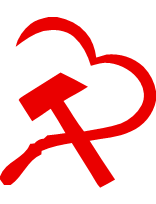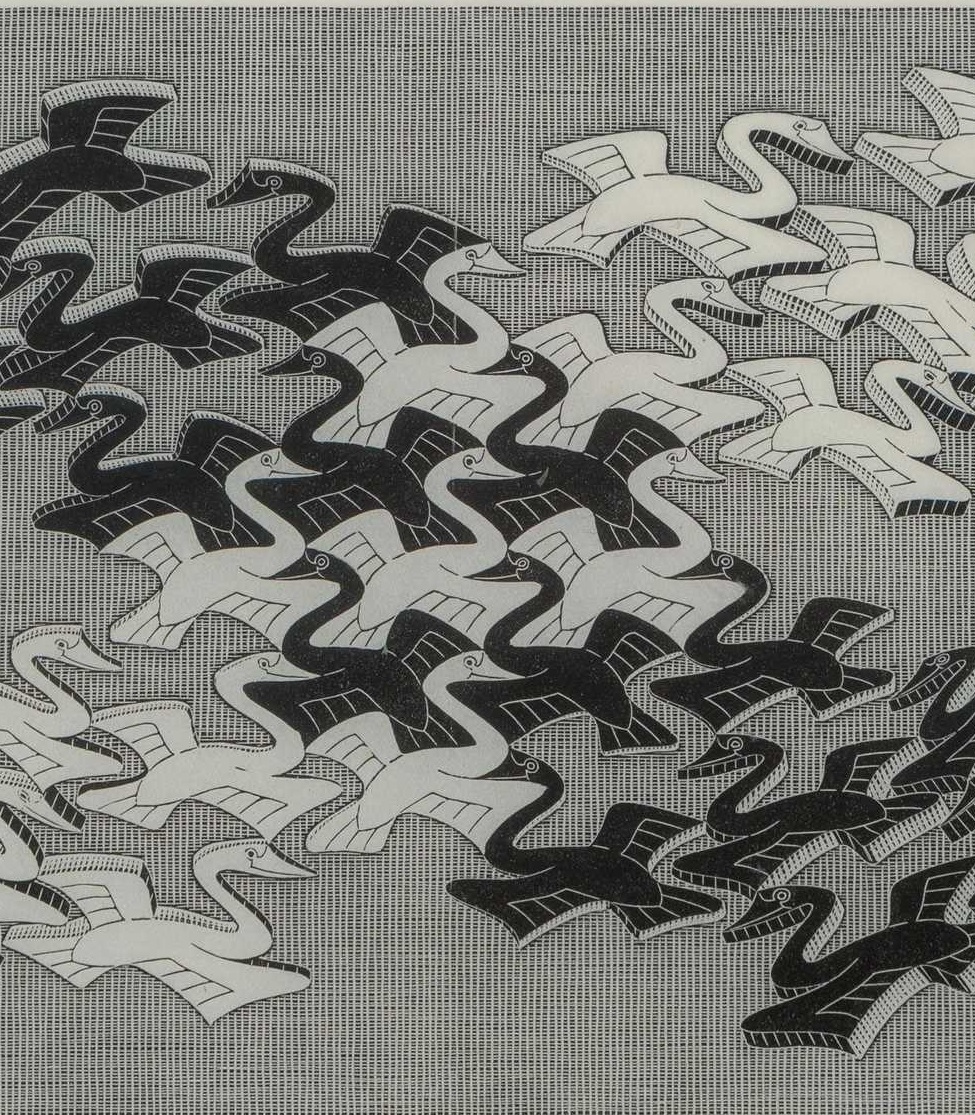Hop in, comrades, we are reading Capital Volumes I-III this year, and we will every year until Communism is achieved. (Volume IV, often published under the title Theories of Surplus Value, will not be included, but comrades are welcome to set up other bookclubs.) This works out to about 6½ pages a day for a year, 46 pages a week.
I'll post the readings at the start of each week and @mention anybody interested. Let me know if you want to be added or removed.
Congratulations to those who've made it this far! We are almost finished the first three chapters, which are said to be the hardest. If you made it through with us now, it's extremely likely that you'll stick the rest out. Let's keep it up! Proud of y'all!
Week 3, Jan 15-21, we are reading Volume 1, Chapter 3 Section 3, Chapter 4, and Chapter 5.
Discuss the week's reading in the comments.
Use any translation/edition you like. Marxists.org has the Moore and Aveling translation in various file formats including epub and PDF: https://www.marxists.org/archive/marx/works/1867-c1/
Ben Fowkes translation, PDF: https://libgen.is/book/index.php?md5=AA342398FDEC44DFA0E732357783FD48
(Unsure about the quality of the Reitter translation, I'd love to see some input on it as it's the newest one)
AernaLingus says: I noticed that the linked copy of the Fowkes translation doesn't have bookmarks, so I took the liberty of adding them myself. You can either download my version with the bookmarks added or if you're a bit paranoid (can't blame ya) and don't mind some light command line work you can use the same simple script that I did with my formatted plaintext bookmarks to take the PDF from libgen and add the bookmarks yourself. Also, please let me know if you spot any errors with the bookmarks so I can fix them!
Resources
(These are not expected reading, these are here to help you if you so choose)
-
Harvey's guide to reading it: https://www.davidharvey.org/media/Intro_A_Companion_to_Marxs_Capital.pdf
-
A University of Warwick guide to reading it: https://warwick.ac.uk/fac/arts/english/currentstudents/postgraduate/masters/modules/worldlitworldsystems/hotr.marxs_capital.untilp72.pdf
-
Reading Capital with Comrades: A Liberation School podcast series - https://www.liberationschool.org/reading-capital-with-comrades-podcast/
2024 Archived Discussions
If you want to dig back into older discussions, this is an excellent way to do so.
Archives: Week 1 – Week 2 – Week 3 – Week 4 – Week 5 – Week 6 – Week 7 – Week 8 – Week 9 – Week 10 – Week 11 – Week 12 – Week 13 – Week 14 – Week 15 – Week 16 – Week 17 – Week 18 – Week 19 – Week 20 – Week 21 – Week 22 – Week 23 – Week 24 – Week 25 – Week 26 – Week 27 – Week 28 – Week 29 – Week 30 – Week 31 – Week 32 – Week 33 – Week 34 – Week 35 – Week 36 – Week 37 – Week 38 – Week 39 – Week 40 – Week 41 – Week 42 – Week 43 – Week 44 – Week 45 – Week 46 – Week 47 – Week 48 – Week 49 – Week 50 – Week 51 – Week 52
2025 Archived Discussions
Just joining us? You can use the archives below to help you reading up to where the group is. There is another reading group on a different schedule at https://lemmygrad.ml/c/genzhou (federated at !genzhou@lemmygrad.ml ) (Note: Seems to be on hiatus for now) which may fit your schedule better. The idea is for the bookclub to repeat annually, so there's always next year.
Also, another comment. I love the literature and history referenced throughout Capital. It makes it fun to read, and it feels like you're reading a work of literature as momentous as the sources he cites. He references Dante and Shakespeare to just make a further point about dense political economy. And I love the last line of the fifth chapter, after Marx notes that surplus value can't be found in circulation yet capitalists are able to buy and sell commodities and yet still get back more value than they put in...
These are the conditions of the problem. Hic Rhodus, hic salta!
From reading the comments here, I also would like to apologize for posting anything too esoteric, or boring, or just turned people off. I'll post some of my thoughts here, and a lot of them are just my questions about money, paper money, and what applies to today. I saw that @blackbread@lemmygrad.ml and @quarrk@hexbear.net were talking about MMT and paper money too. I have nothing to add, but just more questions lol.
Though, I did think about the possibility that paper money today may have taken on forms that Marx didn't originally discuss explicitly? But even if so, Marx would analyze fiat money through contradictions of the money-form. I'm not knowledgeable enough about this, so any thoughts would definitely be helpful. But I kept a quote about contradictions from the beginning of Chapter 3 in mind when thinking about money today and whatever contradictions may exist between fiat money and money as a measure of value:
The further development of the commodity does not abolish these contradictions, but rather provides the form within which they have room to move. This is, in general, the way in which real contradictions are resolved.
Whatever tensions exist between commodities, value, and money that fiat money aided in, it hasn't gotten rid of the tensions - It just moves them to a new arena.
Chapters 4 and 5 are nice and relaxing reading compared to Chapter 3 imo.
In Chapter 4 we see M-C-M’ for the first time. The big idea in this chapter is capital as a process of self-expanding value.
Value in process, money in process, … It comes out of circulation, enters into it again, preserves and multiplies itself within circulation, emerges from it with an increased size, and starts the same cycle again and again.
And we have the general formula for capital, M-C-M’
In Chapter 5, Marx explores where this increment of surplus value ($\Delta$ M) comes from. In equilibrium, or pure exchange, only equivalent values are exchanged. And while prices can diverge from values, this arbitrage can’t provide a constant and reproducible system of surplus extraction, arbitrage can’t provide a system for aggregate surplus value. If looking at only arbitrage in circulation, a gain ‘here’ is offset by a loss ‘there’
After the exchange we still have the same total value… The value in circulation has not increased by one iota; all that has changed is its distribution between [persons] A and B. What appears on one side as a loss of value appears on the other side as surplus value…
Arbitrage causes a change in distribution, but not a change in total value - no aggregate surplus value.
If equivalents are exchanged, no surplus-value results, and if non-equivalents are exchanged, we still have no surplus-value. Circulation, or the exchange of commodities, creates no value.
So the source of surplus value cannot exist in circulation, the source must be “something in the background which is not visible in the circulation itself”
So, as others have said, it feels like the build up to the arguments we are expecting.
Chapter 3, though, that’s a lot to digest. I think my brain has some sort of block where it freaks out about money, and I just expect that I can’t understand it. But, overall it wasn’t too bad. A lot of information, though. And I would like to hear what others, especially those fond of MMT, would say about Chapter 3. I feel as if I have these two “competing” ideas about money floating in my head. On one side, we have this Graber-esque/MMT idea of debt arising first, and money coming out by taxes of the state. And on the other side, there is a Marxist critique (along the lines of the Michael Roberts article I shared) that is closer to the ideas in Chapter 3.
Along the lines of these critiques, money still must have value and MMT throws out too much of the theory of value. The state can’t set the prices through taxation, because prices are “an exponent of value,” the “money-name of the labor objectified in a commodity” (Marx) and value isn’t something subjective and controllable by our wills - it has an objective existence. A state can set the standard of price, I suppose, but not prices, not the measure of value?
Marx actually seems to throw some critiques at these proto-Chartalist, proto-MMT theories of money, and there is a good section on paper money that I’ll need to go back to. This is a section before part 3 of Chapter 3, so it may be best to discuss it in the previous thread. Essentially, Marx critiques this idea that because the money commodity can be replaced by symbols (paper money) in circulation it implies that it is superfluous as a measure of value.
Marx also mentions that paper money can be thrown into circulation and act effectively only if the issuance of paper money is restricted to the quantity of gold which would have been in circulation, and “only insofar as paper money represents gold, which like all commodities has value, is it a symbol of value.”
I’d be interested in hearing how, or if, the present American dollar works under this framework Marx presents.
Going on a bit about paper money, Anwar Shaikh in his book Capitalism has a whole chapter about money, and goes through the history of how tokens and paper money came about in England and in Massachusetts through further and further abstractions of gold commodity money. People used gold and when they deposited their gold to banks and goldsmiths and got receipts, then these receipts became banknotes and served as paper money, etc.
The vibe I got form Shaikh is that these “abstract” versions of money are like a network or spider's web that sprawls out from the original use of gold. And as long as there is no crisis these “abstractions” or “symbols” work as money in the local economy’s circulation. But when crises hit the more abstract versions of money are the first to fall, and the network starts to “collapse”. People want more “real” money during the crisis, so they dump their local bank’s deposits to get the city bank’s deposits, and they may further dump those to get their original gold back.
Eventually, gold as the measure of value reasserts itself. And again, I wonder about how this plays out in our world today.
My opinion is that fiat money can and does do its own thing, but within certain bounds that are enforced by the law of value. Money, even by fiat, must in the last resort always point to actual value, a real commodity with embodied labor. Otherwise it cannot function as a store of value and the economy collapses. However, there is a non-trivial span of time in which this detachment can exist before a crisis. So in this span of time, the ruling class gets to set in motion more capital than really exists as money. Money becomes more and more credit money, ie expected future money. Money in hand right now is therefore temporally linked to future production and earns its character of “burning a hole in one’s pocket.” Modern monetary policy exists in that squishy, speculative space of expected future value production. Therefore money (and the economy as a whole) must always grow exponentially lest a crisis occur.
I like that explanation, and this liminal gap in time where paper money can expand and be detached is what I had in mind when I was reading what Shaikh had to say about the history of paper money. And I also read that into what Marx, or was it Kozlov?, that said that paper money mist refer to gold for value in the final analysis.
So I like the explanation you gave. That's my working theory I'll use in the meantime. And from what I remember reading about Roberts' critique of MMT he agrees that paper money is still bounded by the law of value. I'll need to read it again to double check though
Thanks!
One last thing to mention is that I liked the list of the five functions of money that are presented in Soviet Political Economy textbooks, like Kozlov’s. It helps me keep the arguments in Capital’s Chapter 3 in order. These five functions are:
- 1.) Money functions as a Measure of Value
- 2.) Money functions as a Medium of Commodity Circulation
- 3.) Money functions as a Means of Hoarding
- 4.) Money as a Means of Payment
- 5.) Money functions World Money
Something else from Kozlov (the Editor of a Soviet Political Economy textbook I mentioned earlier) that I'd like to share is its section on Critique of Bourgeoise Theories of Money, since this seems to be coming up with MMT. The following isn't explicitly in Capital, it is mostly from Kozlov, but when reading Chapter 3 I was on the lookout for the below arguments.
Kozlov, writing in 1977, mentions that there are essentially three basic bourgeoise theories of money that Marx critiques. The 1.) metallist, 2.) quantity, and 3.) nominalist theories.
1.) The metallist theory of money claims that "gold and silver were money virtue of their nature, and that they had this property and would always have it, irrespective of the social structure." Any other form of money apart from gold is "unnatural". Marx's critique is that money is a product of a long development of commodity production and its consequences. Objects of one kind or another become money when social relations require it, under definite social and historical conditions - the high degree of commodity production and exchange. Commodities, being an embodiment of human labor - value, need some expression of this embodiment. A need for a universal equivalent starts to evolve. And the gold commodity is a convenient material for fulfilling this function as universal equivalent. It has properties similar to value in that it can be divided up into smaller parts, it differs in itself only by quantity, it also is a product of human labor - gold has value.
2.) The nominalist theory of money claim that "money is simply a nominal unit of account, lacking any material content, a conventional token established by the state for measuring the value of goods... value has no value itself and, consequently, no inner connections with commodities either, and receives its force entirely form the state authorities.
So MMT theory and Chartalism fall under this category.
The critique Marx brings is that this nominalist theory "replaces objective economic laws and categories by legal concepts and norms. It reduces the essence of money as a historically determined social and production relationship to its outward and visible form, i.e. to the standard of price." While the state can establish any standard of price (fix the weight of a metal to be the standard unit of money), it is not in a position to fix value. And Marx discusses how the paper money placed in circulation can only work if it replaces the same amount of gold that it displaces, and that it is gold, in the final analysis, that gives paper money its purchasing power.
There is an interesting tidbit in this book where the nominal theory of money is critiqued as justifying excessive issues of paper money and inflation, which "are additional ways of robbing and exploiting the working people."
3.) The last bourgeois theory is the quantity theory of money, where the value of money is determined exclusively by the quantity of it in circulation. The book then offers a a critique of Ricardo who, apparently, tried to combine the labor theory of value with the quantity theory of money in his analysis of gold (I haven't read Ricardo, so I'm just taking their word), as well as a dig at Keynes. We saw in Chapter 3 where Marx critiques the quantity theory of money in the part of Chapter 3 before section 3. Essentially, the quantity of money needed in circulation depends on the sum of the prices of the circulating commodities, and the velocity of money. But prices aren't determined by the quantity of the circulating medium, as commodities enter the market first with a price and money enters the market with a value (because gold, being a product of labor, has a value and is the source of the value of paper money as well).
Does all this hold today? This is where I shrug my shoulders. Now fight, everyone!
A bit behind still due to work and studying, but I hope to catch up soon!
No worries! Our journey is a long one, you have plenty of opportunity to catch up.
As I read the first part of this chapter (about gold and formation of money) I was thinking in my head about how fiat currency is basically not different than debased gold. The later part of the chapter talked about how money becomes a credit system (which leads to potential boom and bust systems). Anyway, I'm feeling that after reading capital, you can probably just toss Modern Monetary theory into the garbage (I noticed others said similar things reading chapter 2).
I found the idea that things that don't have "value" (because they're not produced by labour -- like titles, or land) can acquire prices to be very intriguing (and unexpected). The history of "money names" (e.g. pound sterling [silver]) becoming totally divorced from their modern quantities due to debasement.
I had to reread what he said about money serving too roles -- measure of price and standard of value. Read that over half a dozen times, but it makes sense to me now. I paid attention when Marx said that the "use-value" of gold (as money) becomes equal to it's exchange value (gold can of course, be used for other things, but one thing it is used for, is exchange). This is a dialectical unity.
Just a whole lot in this chapter that was interesting. For example, that the quantity of gold in circulation would be tied to the speed of transactions and the amount of commodities --- and not the reverse (e.g. gold being added won't increase the amount of commodities nor speed up transactions).
you can probably just toss Modern Monetary theory into the garbage
I don't know much about MMT, but I would pump the brakes a little bit. I don't think chapter 3 of Capital says everything there is to say about money as it exists today. Marx does a good job showing the essence of money and how money is indispensable within capitalist society. Yet this analysis doesn't constrain money from developing into an ever more complex and obfuscating form, partly detaching from value and taking on a life of its own. Capitalism did not emerge from thin air but out of older forms of society. The money form which we see today has a sort of genetic heritage which can be traced back precisely to precapitalist forms of money. Modern money is a bastardized form of primitive money which capitalism has reappropriated for its own purposes.
Money could, through the course of historical development, acquire new functions which adhere themselves, like parasites, to the relatively simple form of money laid out in Capital. This is probably what you mean by saying fiat money is like when a money commodity debases itself; the next logical question, then, is precisely how this debased form of money works, all the while understanding that money also must satisfy its functions as measure of value, as store of value, as medium of exchange, and as means of payment.
In this way there could be things to learn from heterodox theories like MMT. To what extent can fiat money diverge from real production before the law of value asserts itself and forces a monetary crisis? Why does fiat money arise in the first place? Does fiat money help capitalism, or accelerate its demise? It seems to me that, regardless of whether mass-printed money actually adds value in circulation, it might not really matter as long as people treat it as though it is rooted in real commodities. This would mean that a government could actually print new currency and stimulate the economy as though it had actually created new value. This would heighten the likelihood and severity of a monetary crisis, but can that be deferred arbitrarily far in the future with clever policy?
There's a lot I don't know about this topic. I believe Michael Hudson is a proponent of MMT — though not necessarily in all its variations — and I believe he has a pretty strong grasp of Marx, having read all volumes of Capital including "volume 4" Theories of Surplus Value.
This is motivating me to give Michael Robert's critique of MMT a better read, but also see what the other Michael, Roberts, has to read. Because I pretty have these same questions and general confusions about how or where MMT meets Marx
Great points. I can't wait to see how the argumentation of land and other things with no labor value becomes capital or tools of capital accumulation.
I also found the points he makes about temporality, speed and time very interesting, because to my understanding one of the common critiques of Marx (and later Lenin) is a supposed lack of attention to temporality. It's however very clearly built into the analysis from early on.
How is everyone doing with their reading?
I felt like this weeks material was fairly straightforward to understand and that we are still in the stages of "setting the argument and the reasonings behind it", if that makes sense.
Clearly we are advancing to the critique more already as well. But still feels like Marx is laying a foundation for what is to follow.
I am finding the discussions of the previous year fruitfull, but also wonder if they are why these ongoing threads are at least so far relatively silent?
Some of the commenting is also dauntingly sophisticated and I hope we can also casually chat about how a weeks material felt or just come in and state that it's done. Might be just me, but I wanted to voice this anyway.
So yeah, looking forward to next week. How goes it comrades?

Some of the commenting is also dauntingly sophisticated and I hope we can also casually chat about how a weeks material felt or just come in and state that it's done. Might be just me, but I wanted to voice this anyway.
Yea, I might have come in too hot with the esoteric debates in the previous threads. I’m gonna try to keep closer to what’s strictly in the weekly reading. I very much also want to just discuss the reading casually; it doesn’t need to be high stakes.
I think this week’s reading is tough, so I wouldn’t be surprised if others are struggling and that is slowing some progress.
Never stop because I and I assume others are here partially for the esoteric debates and broader understanding. It typically helps understanding a lot more then just trying to apply this alone too, but not often is it easy to build or comment on if new to Capital or book clubs (I am personally a book club first timer). Which is imo fine too.
Just making sure the casual is also ok, but not looking to discourage deep discussion either.
Finished Chapter 3 so far, and it's dense! But 4 and 5 seem easier. Regarding fewer people commenting, I hope that picks back up, but I do think it has to do with last year capturing more people. We will see if others spring back up, but I've loved the much higher level discussion too!
I love the higher level stuff as well, gives you a lot to chew on. But just wanted to also make sure that I or others don't feel like they need to come in with a full analysis of the weekly reading in order to comment.
Oh and loved the part about Moneybags this week. It is very entertaining that Marx has created this actual character in the book whose capitalist adventures we get to follow:
"Our friend, Moneybags, who as yet is only an embryo capitalist, must buy his commodities at their value, must sell them at their value, and yet at the end of the process must withdraw more value from circulation than he threw into it at starting. His development into a full-grown capitalist must take place, both within the sphere of circulation and without it. These are the conditions of the problem."
It's like: SO IT BEGINS!
just wanted to also make sure that I or others don't feel like they need to come in with a full analysis of the weekly reading in order to comment.
Thanks for saying that, as this is exactly what I was feeling haha. I guess I'll start posting my silly observations and doubts, maybe other people are having the same experience as me but feel kind of intimidated to post them (I do)
Nice to hear, I relate to feeling intimidated so it's nice to hear you say this. I also felt this to be important to voice, because a deeper analysis takes time and spoons that not all can have, at least not weekly.
It's great to just hear others are also doing the reading and that we are reading this together.

I also am hoping others comment too. I am the process of writing up notes for my own understanding. But they are not yet complete (are notes ever complete), and so I'm stuck in this liminal space where I feel like I'm stuck between posting small thoughts or interesting tidbits that spring to mind, and wanting to post something more "polished"
Yes I already found the notes to be tricty this week as it is evolving more into argumentation. So I didn't post them this week.
I suppose I am still waiting for some sort of lighbulb moments that do come when I am doing the reading, but then don't feel so important later on. I don't want to make many assumptions yet either, because it seems to still be in the build up-phase.
I had many thoughts about the petro dollar and the chapters this week for example that I can't quite articulate yet.
I'd love to look forward to any notes of yours, especially on the petrodollar.
I know that someone on hexbear made a thread a while back asking for essays on the petrodollar, but it didn't get much traction. The only response was about how the petrodollar is overblown is a concept and doesn't really exist? Idk enough to say one way or the other... but the thread got me to do some searchong and I did find an article from the Historical Materialism journal that discusses the dollar and it's relation to the oil commodity. This stuff is beyond my level, though, so it'd take a lot of time for me to go through it and actually get something out of it. I think I just read the abstract and placed it on my to do list.
So any notes to aid in understanding or get the gears going would be welcomed if youd like to post them later!
Yea Marx is a funny guy to be honest, I fear a bit of that gets lost in the Fowkes version I'm reading but overall, super happy to be working through this.
I just found out about this D:
Thank you for all the links and resources! I will definitely try to catch up (or at least join the other group with the different schedule)
Do you want me to add you to the reading list? It's not too late to catch up! And for clarity, most of these resources are from last year's group which was run by Vampire@hexbear.net, not me, haha. The other reading group has been on hiatus for a while and I am not sure when they plan on continuing.
Still, thank you for replying to me and letting me know then haha
I'll say yes to being added to this group then :) I've always wanted to read the Capital but never got around to it, so this "challenge" is perfect
Hey everyone, it's time to come discuss Capital again!
@FromPieces@lemmygrad.ml @roux@hexbear.net @0__0@hexbear.net @bennieandthez@lemmygrad.ml @pierre_delecto@hexbear.net @StillNoLeftLeft@hexbear.net @RedWizard@hexbear.net @o_d@lemmygrad.ml @IceWallowCum@hexbear.net @quarrk@hexbear.net @real@hexbear.net @Sasuke@hexbear.net @ComradeSpahija@hexbear.net @NinjaGinga@hexbear.net @SabbaticGoat@hexbear.net @woodenghost@hexbear.net @Parsani@hexbear.net @inTheShadowOf@hexbear.net @radio_free_asgarthr@hexbear.net @pr0kch0p@hexbear.net @NedIsakoff@hexbear.net @LibsEatPoop@hexbear.net @LisaTrevor@hexbear.net @AernaLingus@hexbear.net @devils_dust@hexbear.net @burntpopcorn@hexbear.net @ExtimateCookie@hexbear.net @oscardejarjayes@hexbear.net @CarlMarks@lemmygrad.ml @blackbread@lemmygrad.ml @imogen_underscore@hexbear.net @khizuo@hexbear.net @glimmer_twin@hexbear.net @Sebrof@hexbear.net @CommieTurtle@lemmy.ml
Hi, just a small correction: the title said week 3, but the body of the text said week two.






